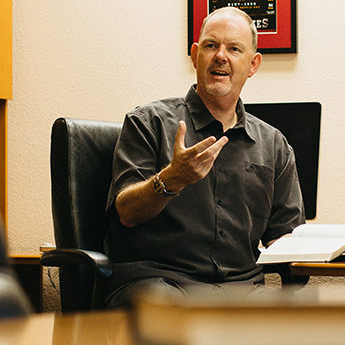I have been doing a little experiment. I start my day with three specific statements of gratitude, trying to make a habit of gratitude. I read that doing this can make a difference in your mood, but also your physical health.
In fact, physically, gratitude leads to less aches and pains, lowers your blood pressure, improves your immune system, and helps you heal from trauma. It can also release the bonding hormone oxytocin. This physiological release decreases the activation of stress hormones such as cortisol and promotes health. Thus, your body has a physiological reaction to gratitude that makes you feel good.
Psychologically, when we are grateful, we are happier overall. According to neuroscientist, Rick Hansen, gratitude helps you feel brighter and more alert. He believes that gratitude helps the brain increase dopamine – involved in the planning and experience of rewards.
The expression of gratitude also helps us experience more positive emotions and become more focused in our lives. It creates feelings of joy and happiness. Gratitude strengthens our emotions and makes us feel more positivity and helps us bounce back from stress.
Socially, grateful people are more optimistic, more outgoing, helpful and more compassionate. And aren’t those the people you want to be around? Therefore, make it a goal to tell one person each day something for which you are grateful. And here is a bonus. Thankfulness also leads to a more generous spirit.
So, a daily gratitude practice can change your day. If you have more problems expressing gratitude, maybe write down three things for which you are grateful and notice the change in your mood. They don’t have to be big things. For example, I am grateful for a warm bed every night. I am grateful for kind neighbors. I am grateful for children who do their best at school, etc. Writing reinforces your thoughts and requires an intentional act to get it on paper.
This exercise has been shown to lift depression and make you feel better. In addition to writing down your gratitude, you can try what I am doing, intentionally speak statements of gratitude. For example, I was outside walking and the sunset was stunning. I paused, thanked God for the beauty of His creation. Or the other day, I swerved away from a car that almost hit me and I thanked God for His protection. There are many opportunities every day to be thankful. Rehearse them in your mind.
Finally, Scripture admonishes us to give thanks: Give thanks to the Lord, for He is good; his love endures forever. Psalm 118:1
And whatever you do in word or deed, do everything in the name of the Lord Jesus, giving thanks to the Father through Him. Colossians 3:17
Like anything, the more you practice, the more habitual it will become! This year, make gratitude one of your good habits.














